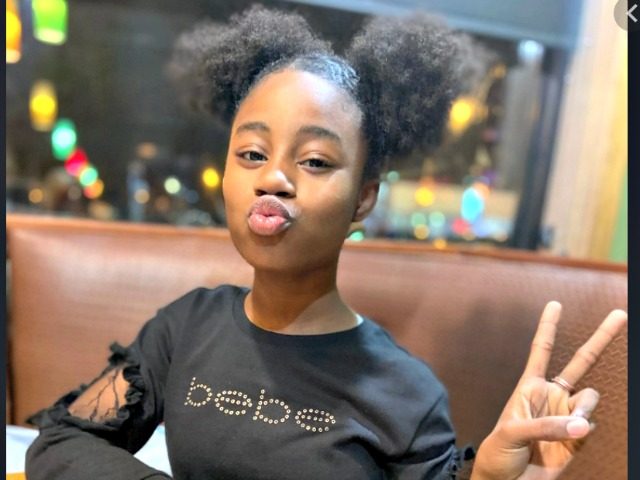The New York Times admitted July 6 that murder rates are spiking amid the 2020 street protests and the progressive cheerleading for the radical “Defund the Police” campaign.
Compared to early 2019, “Murder is up 21.8 percent in all 36 [large] cities with 2020 data through at least May,” said the New York Times article, under a misleading, no-news headline, “It’s Been ‘Such a Weird Year.’ That’s Also Reflected in Crime Statistics.”
According to the NY Times, Murders are up 24 percent in Democrat-run Chicago since February, up 23 percent in Democrat-run Philadelphia, up 43 percent in Democrat-run Nashville, up 36 percent in Democrat-run New Orleans, up 38 percent in Democrat-run Indianapolis, and up 23 percent in Democrat-run New York.
But there is no political lesson amid the 2020 corpses and carnage, the New York Times reassured its readers:
“These numbers do not tell a story that supports any ideological side of the debate around policing,” Mr. Goff said. “What it supports at most is a need for rigorous curiosity about a vital issue.”
[Jennifer Doleac, associate professor of economics and director of the Justice Tech Lab at Texas A&M] also says it is too early to draw any firm conclusions: “This is such a weird year in so many dimensions, and it’s going to take us a while to figure out what caused any of these differences in crime. It is perfectly reasonable to think the first half of this year may not tell us what the rest of the year will look like.”
The NY Times declined to say how many people died to deliver these percentage increases.
The NY Times declined to mention the race of the killers and the dead.
After decades of steady decline, the nation’s murder rates rose sharply after President Barack Obama tacitly supported 2014’s anti-police riots and the Black Lives Matter movement. However, the murder rates dropped quickly once President Donald Trump ended Obama’s policies.
The article was paired on the NY Times home page with a second article under a subheadline “Nine children under the age of 18 have been shot dead in Chicago since June 20.” The article said:
As Yasmin Miller drove home from a laundromat in Chicago’s Englewood neighborhood last weekend, a gunman in another car peppered her red Hyundai sedan with bullets, grazing her head and striking her son, Sincere Gaston, in the chest. Sincere died in his car seat. He was 20 months old.
…
In all, nine children under 18 have been killed since June 20 as Chicago reels from another wave of gun violence. The last two were killed on Saturday evening. A 14-year-old boy was shot to death on Chicago’s South Side. A 7-year-old girl was struck in the forehead by a bullet when three gunmen opened fire on a July 4 street party on the city’s West Side, the police said.
“The Windy City is becoming the Bloody City,” said the Rev. Michael L. Pfleger of Saint Sabina Church, calling it the worst period in the 45 years he has worked on social issues. “I have never seen the despair, hopelessness and anger all mixed together at the level it is right now.”
The second article addressed the elephant in the room:
The violence comes amid a wrenching debate nationwide about policing in the wake of the death of George Floyd in Minneapolis at the hands of the police. Those who defend the police say that the violence shows they need more support, not less, and that it is people living in high-crime areas who most need effective policing. Critics say the violence shows how the police are failing the public, how deeply residents distrust officers and the need for reforms and the transfer of funds to address underlying problems, including unemployment, mental illness and drug use.
“There are 8,000 blacks who are killed every year,” Attorney General William Barr told National Public Radio on June 26. “Eighty-five percent of them are killed by gunshots. Virtually all of those are blacks on blacks,” he explained.
If put in “perspective,” he argued, the data on police-involved shootings does not fit the narrative of the Black Lives Matter movement — which goes as far as accusing police of “genocide” or saying that black Americans are “systemically targeted for demise.”
Barr’s point on homicide and black Americans has been acknowledged across partisan lines. For instance, in July 2016, President Obama said the statistics on this issue are “crazy”:
It is absolutely true that the murder rate in the African-American community is way out of whack compared to the general population. And both the victims and the perpetrators are black, young black men. The single greatest cause of death for young black men between the ages of 18 and 35 is homicide. And that’s crazy. That is crazy.
A study produced by then-President Obama’s DOJ provides similar data about murders and race from 1980 to 2008. The report noted, “Blacks were disproportionately represented as both homicide victims and offenders. The victimization rate for blacks (27.8 per 100,000) was 6 times higher than the rate for whites (4.5 per 100,000). The offending rate for blacks (34.4 per 100,000) was almost 8 times higher than the rate for whites (4.5 per 100,000).”
Follow Neil Munro on Twitter @NeilMunroDC, or email the author at NMunro@Breitbart.com.


COMMENTS
Please let us know if you're having issues with commenting.